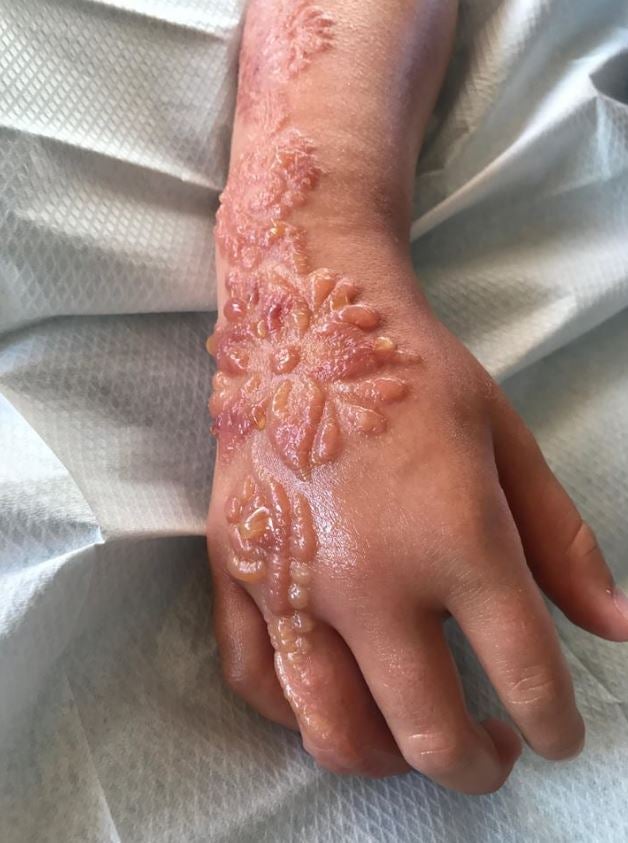


Parents are being warned to stop their kids getting some temporary henna tattoos, or risk painful skin reactions and permanent scarring.
Henna tattooing — a non-penetrative form of body art which leaves a temporary mark on the skin — is traditionally created using natural materials derived from a small tree of the same name.
But visitors to popular holiday spots like Bali are being reminded of the dangers associated with ‘black henna’, which can contain a toxic chemical called Paraphenylenediamine (PPD), capable of causing allergic reactions and permanently damaging skin.
“Unlike here in Australia, there may not be any regulation of what goes into the dye, and children in particular can have extreme reactions that can cause blistering, open sores and a chemical burn,” House Call Doctor’s Dr Ryan Harvey said.
“While many parents think getting a temporary Henna tattoo is harmless holiday fun, it can lead to permanent scarring.”
PPD is mainly used in black hair dyes, but in very small amounts. Natural henna is usually somewhere between red, orange, brown or burgundy.
Travelling parents are urged to be particularly vigilant about what substance a henna artist is using on their children.
The Australian Department of Foreign Affairs and Trade advises travellers to avoid temporary black henna tattoos “as they often contain a dye which can cause serious skin reactions”.
In 2017, seven-year-old Madison Gulliver was left with scars after suffering chemical burns from a black Henna tattoo she received on a family holiday to Egypt.
After returning home to the UK, the tattoo became itchy before erupting in blisters.
Gulliver had to wear a pressure bandage for at least six months to minimise scarring.
Just last month, a five-year-old Perth boy went through a similar ordeal after a trip to Bali. A month after returning home, a painful red welt on the young boy’s skin had still not healed.
While it is illegal to use PPD on a client’s skin in Australia, this doesn’t mean you are guaranteed completely natural henna on home shores either.
Unadulterated Henna typically takes about 24 hours to properly stain the skin, Ahmed explained, while substances containing chemicals including PPD will do the job almost instantly.
“I think even over here there are a lot of people who use black henna,” Fareha Ahmed, a Sydney-based Henna artist, told 10 daily.
“I’ve seen it so many times at festivals, everyone prefers to do black Henna because it stains straight away. So it’s not just overseas it’s here as well.”
“I have personally worked on girls that have scarring from other artists, and it was the most horrible experience for them.”
When getting any Henna tattoo in Australia or overseas, she advises people ask the artist how long it will take to stain — if the answer is straight away, she said it might be a sign that a chemical of some sort is involved.
Original Source: 10 Daily | 9 July 2019




